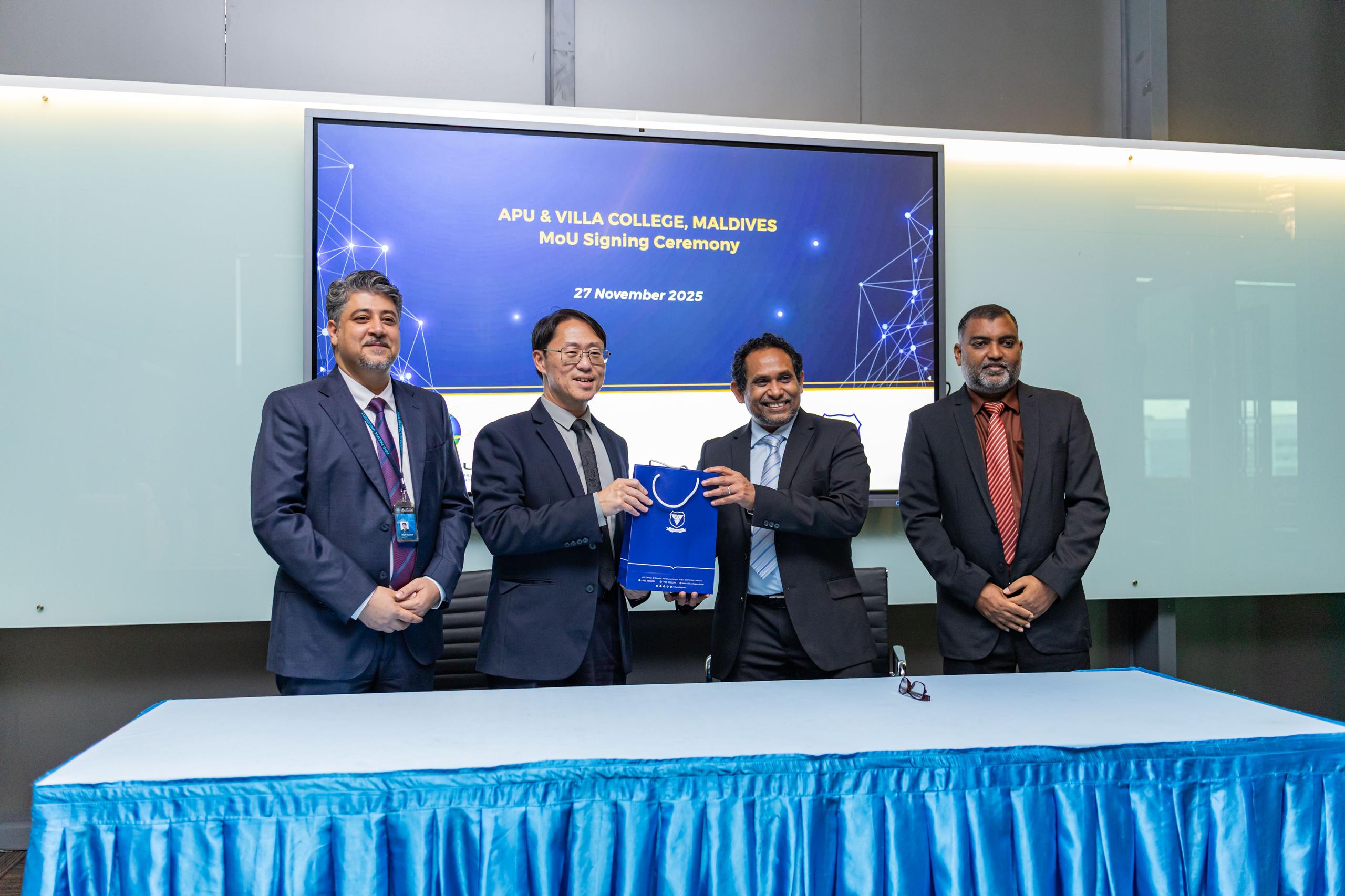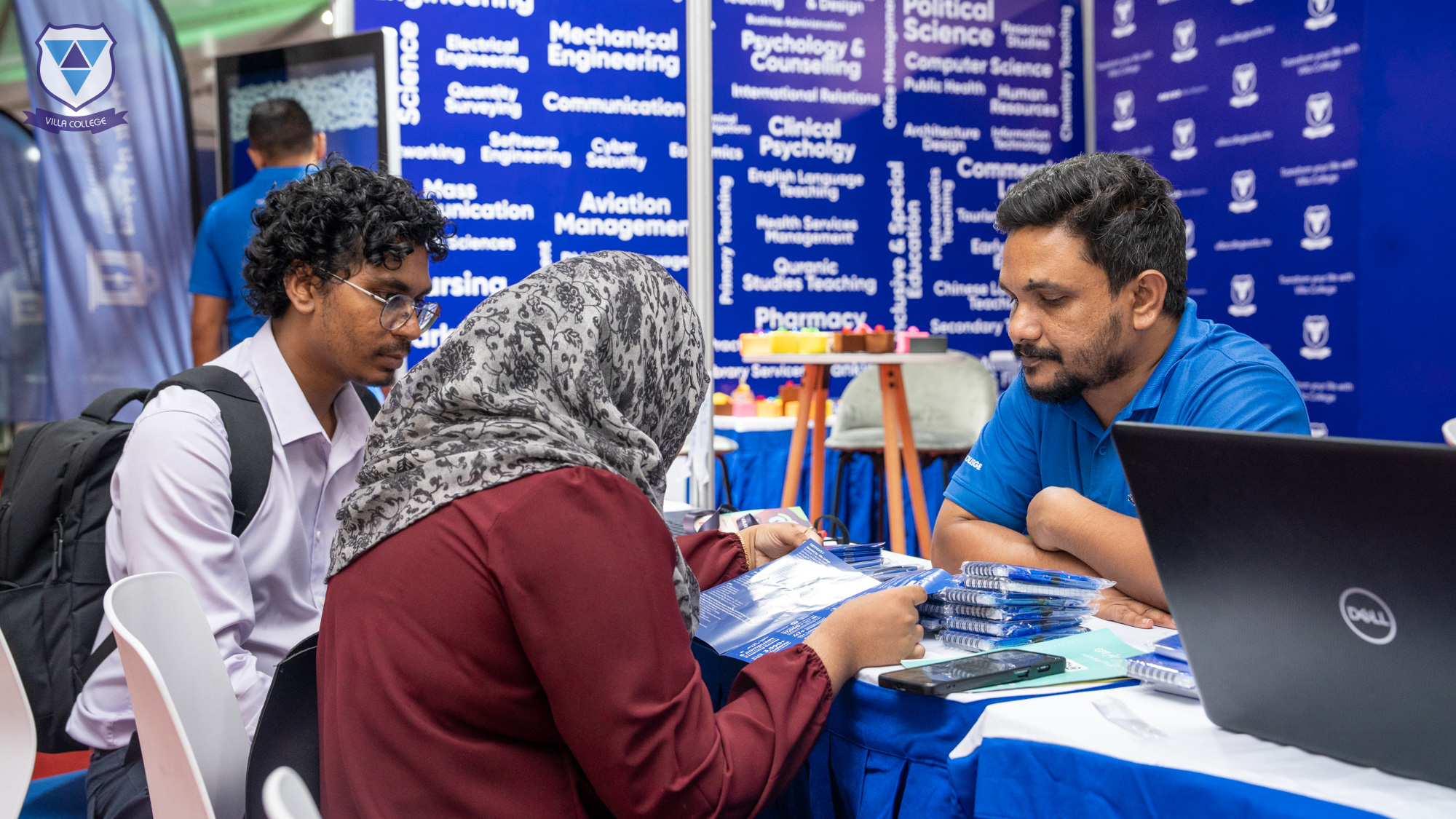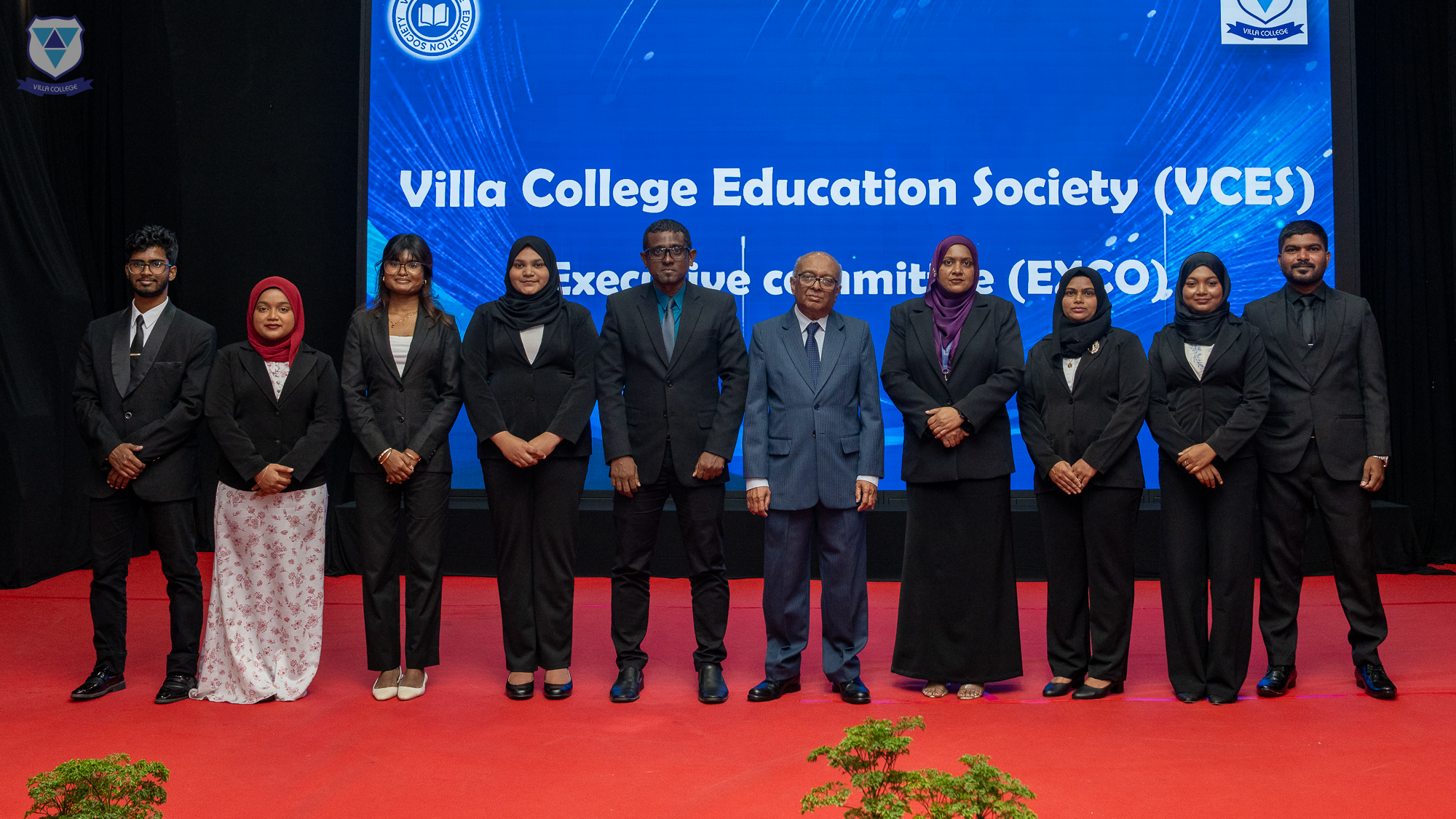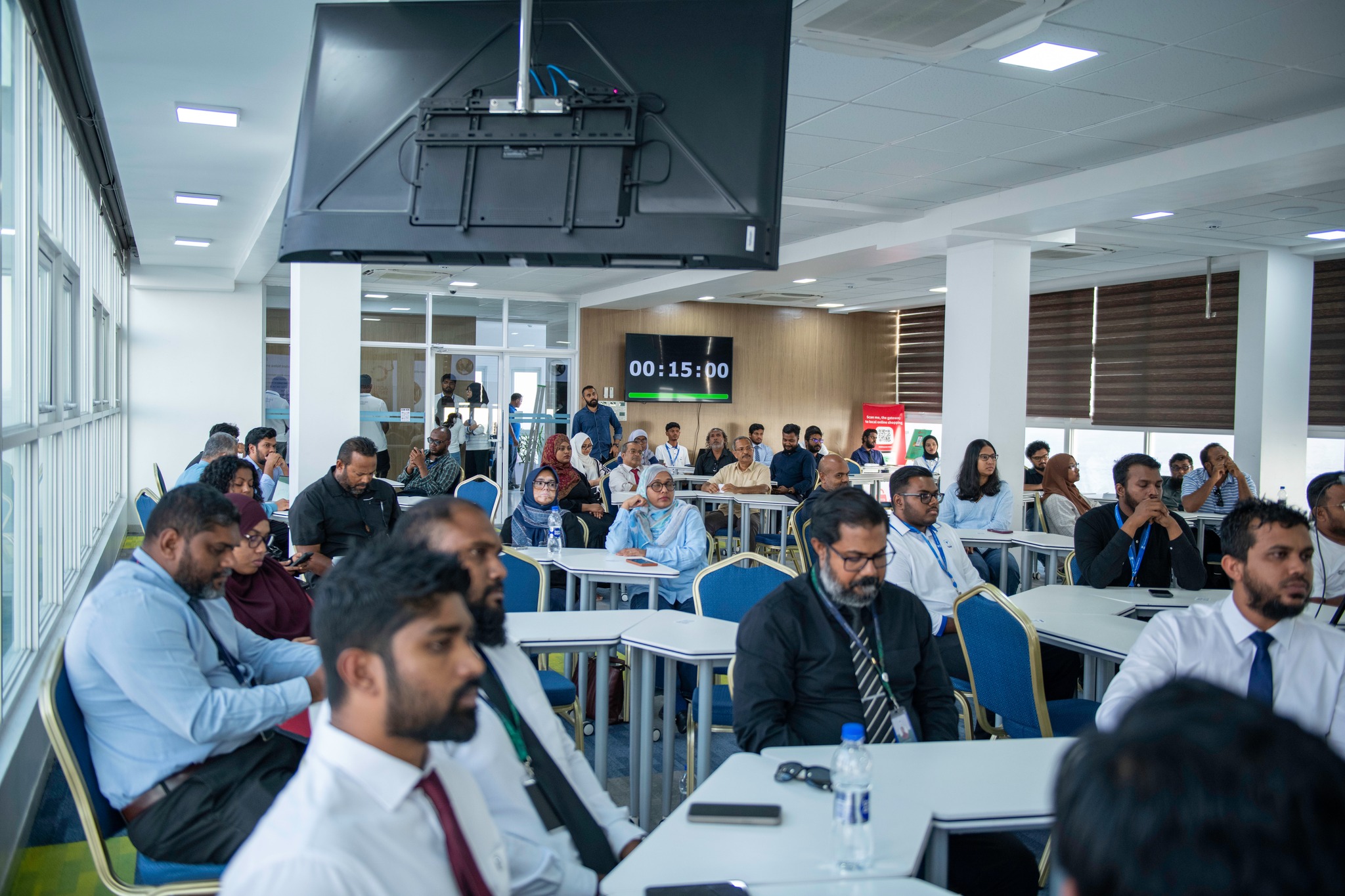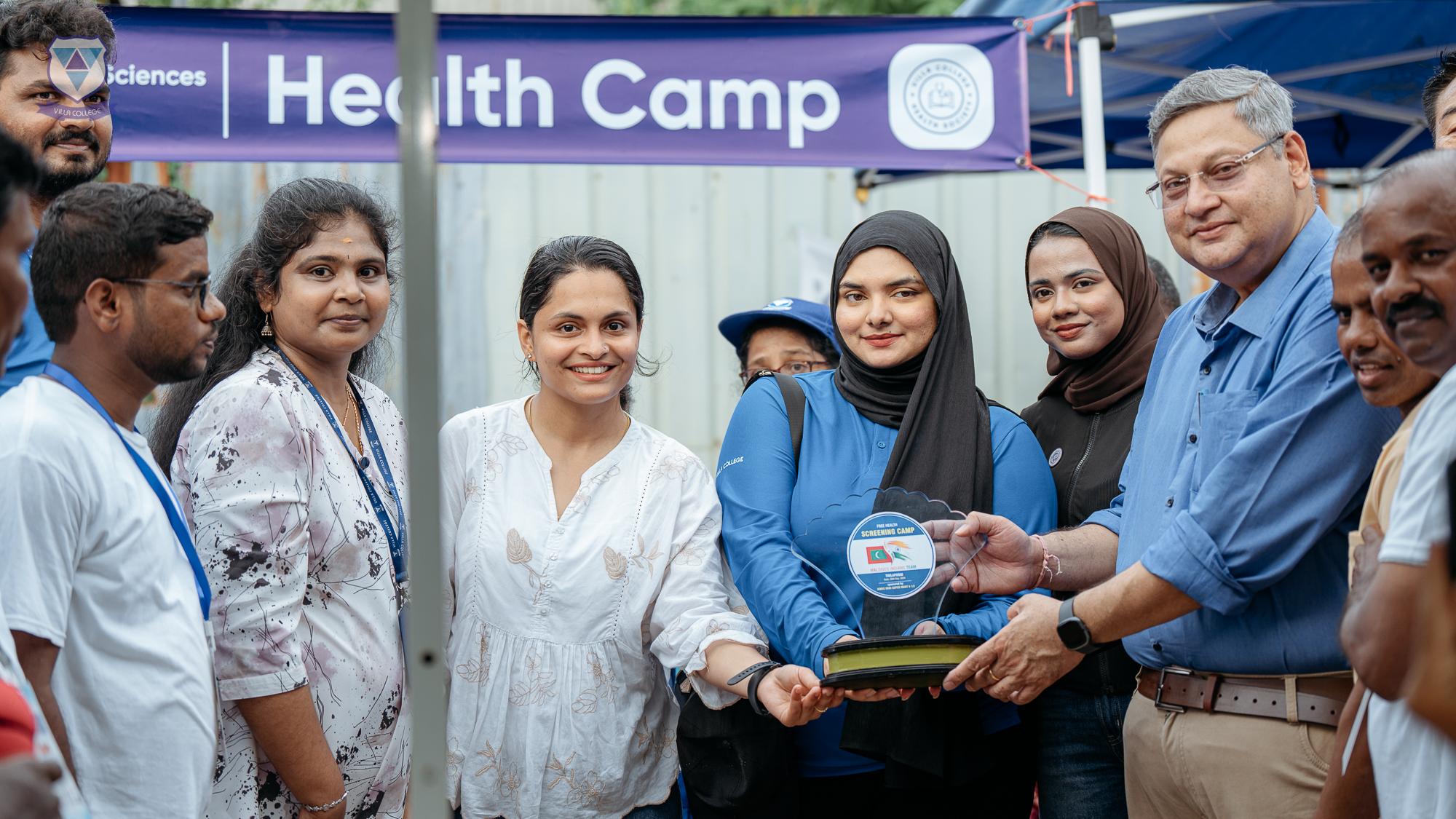
Villa College's Faculty of Health Sciences demonstrated the transformative power of educational institutions engaging with community needs through the successful organization of the Migrant Workers Wellbeing Camp in Thilafushi on September 26, 2025. This comprehensive initiative, conducted in partnership with the High Commission of India, exemplified how higher education can translate global sustainability commitments into meaningful local action while addressing critical gaps in community healthcare and social support.
The wellbeing camp attracted 246 migrant workers who accessed a range of essential services designed to address their immediate health needs and long-term wellbeing. The healthcare component provided thorough health screenings encompassing height, weight, BMI measurements, blood pressure monitoring, blood glucose testing, oxygen saturation levels, pulse rate assessment, vision testing, and hearing evaluations. These screenings were complemented by targeted health education sessions covering nutrition guidance, hygiene practices, food safety protocols, and medication awareness programs.
Beyond physical health assessments, the initiative recognized the critical importance of mental health support within migrant worker communities. Psychological services included comprehensive screenings, individual counseling sessions, and group therapy opportunities, ensuring participants received holistic care that addressed both physical and mental health dimensions. This integrated approach acknowledged the interconnected nature of wellbeing and the particular vulnerabilities faced by migrant worker populations.
The legal aid component focused on workplace safety education, rights awareness programs, and attestation support services. These services empowered workers with essential knowledge about their employment rights, workplace safety standards, and legal protections available to them. By providing accessible legal information and support, the camp addressed fundamental issues of worker empowerment and protection that are often overlooked in traditional community health initiatives.
The initiative demonstrated remarkable alignment with multiple United Nations Sustainable Development Goals, showcasing how localized community action can contribute to global sustainability targets. The comprehensive healthcare services and health education programs directly advanced SDG 3 for Good Health and Wellbeing by ensuring migrant workers had access to preventive healthcare services and health knowledge that might otherwise remain unavailable to them.
The workplace safety education and rights awareness components strongly supported SDG 8 for Decent Work and Economic Growth by equipping workers with knowledge essential for maintaining safe working conditions and understanding their employment rights. This educational approach contributed to creating more informed and empowered worker communities capable of advocating for fair treatment and safe working environments.
The camp's commitment to providing free access to healthcare and legal protection resources addressed fundamental issues of social equity, directly contributing to SDG 10 for Reduced Inequalities. By ensuring that migrant workers, who often face barriers in accessing essential services, could obtain comprehensive support without financial burden, the initiative helped bridge significant social gaps within the community.
The legal education and rights awareness programs supported SDG 16 for Peace, Justice and Strong Institutions by strengthening trust in justice systems and promoting understanding of legal frameworks designed to protect worker rights. This educational approach fostered greater confidence in institutional support systems and promoted peaceful resolution of workplace issues through proper legal channels.
The success of the wellbeing camp demonstrated the effectiveness of SDG 17 for Partnerships for the Goals through its comprehensive collaboration model. Villa College's Faculty of Health Sciences worked closely with the High Commission of India in Maldives to ensure the initiative met the specific needs of the migrant worker community while drawing on diplomatic and institutional resources to maximize impact.
Community engagement was strengthened through active participation from the Maldives Indians Community Group, whose volunteers provided essential local knowledge and cultural understanding that enhanced service delivery. Professional legal support came through partnership with Burunu Legal and Consultancy, ensuring that legal aid services met professional standards and addressed the most pressing legal concerns facing migrant workers.
Student engagement enriched the initiative through involvement from the Psychology Association of Villa College, Villa College Health Society, and Villa College Law Society. These student organizations provided valuable learning opportunities for future professionals while contributing meaningful services to the community. The participation of VCare Counselling and Psychotherapy Centre added specialized mental health expertise that enhanced the psychological support components of the camp.
Corporate partnership through sponsors such as Mazi Chemist and Life Support provided essential resources that enabled the camp to offer comprehensive services without cost to participants. These partnerships demonstrated how private sector engagement can support community wellbeing initiatives while fostering positive relationships between businesses and vulnerable community members.
The wellbeing camp represented more than a single-day service provision event, serving as a model for how educational institutions can engage meaningfully with community challenges while providing authentic learning experiences for students. The initiative created opportunities for students in health sciences, psychology, and law to apply their academic knowledge in real-world settings while contributing to community wellbeing.
The comprehensive approach to worker wellbeing addressed both immediate needs and longer-term empowerment goals. Health screenings provided essential baseline information that workers could use to monitor their ongoing health status, while health education sessions equipped them with knowledge applicable to daily life decisions. Legal education created lasting awareness of rights and protections that workers could apply throughout their employment experiences.
The psychological support components recognized the often-overlooked mental health needs within migrant worker communities, providing both immediate counseling support and longer-term coping strategies. This holistic approach to wellbeing acknowledged that sustainable community health requires attention to physical, mental, and social dimensions of human flourishing.
The Migrant Workers Wellbeing Camp exemplified Villa College's commitment to community-engaged education that creates mutual benefits for students, faculty, and community members. By organizing comprehensive service delivery initiatives, the institution demonstrated how higher education can serve as a catalyst for positive social change while providing meaningful learning experiences for future professionals.
The initiative reinforced principles of dignity, inclusivity, and fairness that are essential to sustainable community development. Through careful attention to the specific needs of migrant worker populations, the camp demonstrated cultural sensitivity and commitment to serving vulnerable community members who might otherwise lack access to essential services.
The success of this collaborative initiative established a foundation for ongoing community engagement that can serve as a model for future initiatives addressing various community needs. The partnerships developed through this camp created networks of support that extend beyond the immediate event, fostering ongoing relationships that can support continued community wellbeing efforts.
The comprehensive nature of the services provided, the successful collaboration among diverse partners, and the meaningful impact on 246 migrant workers demonstrated Villa College's capacity to organize large-scale community initiatives that address real needs while advancing educational goals. This achievement reflects the institution's commitment to social responsibility and community engagement that extends well beyond traditional academic boundaries.
